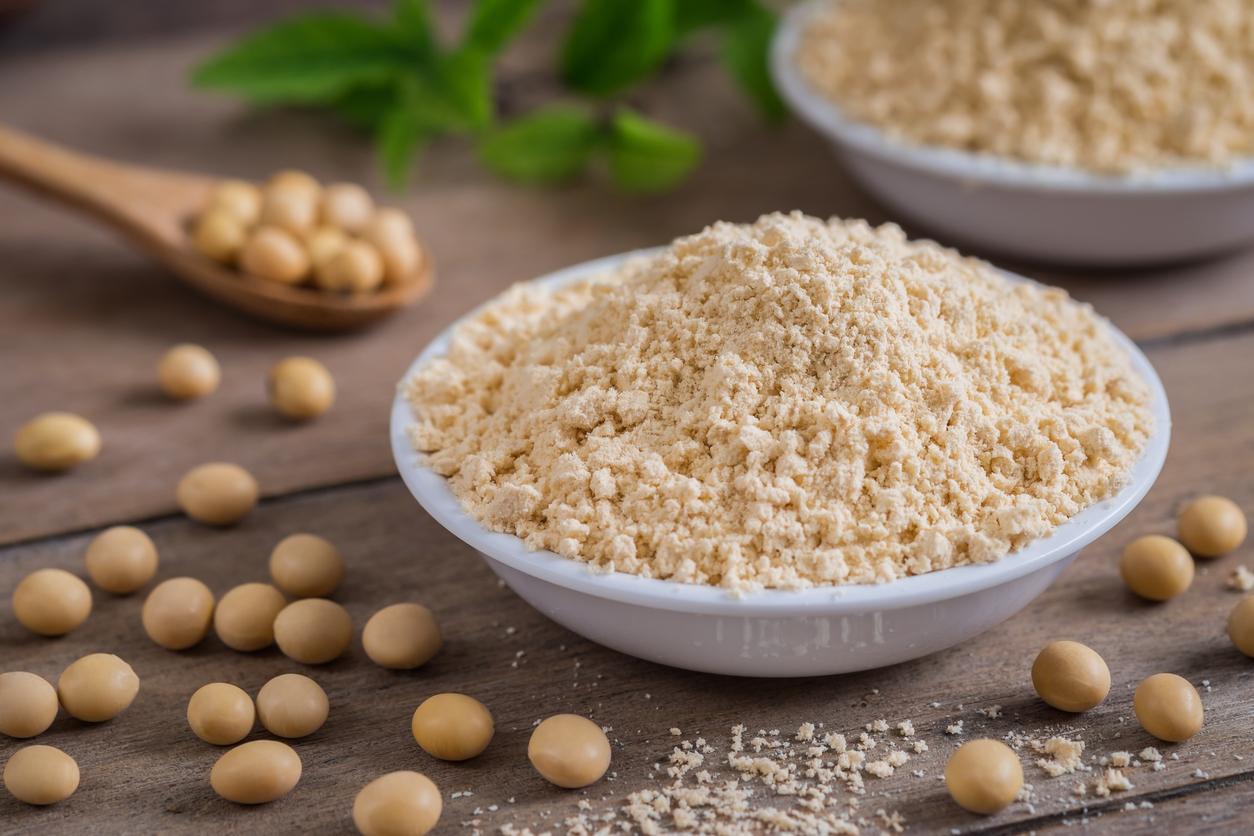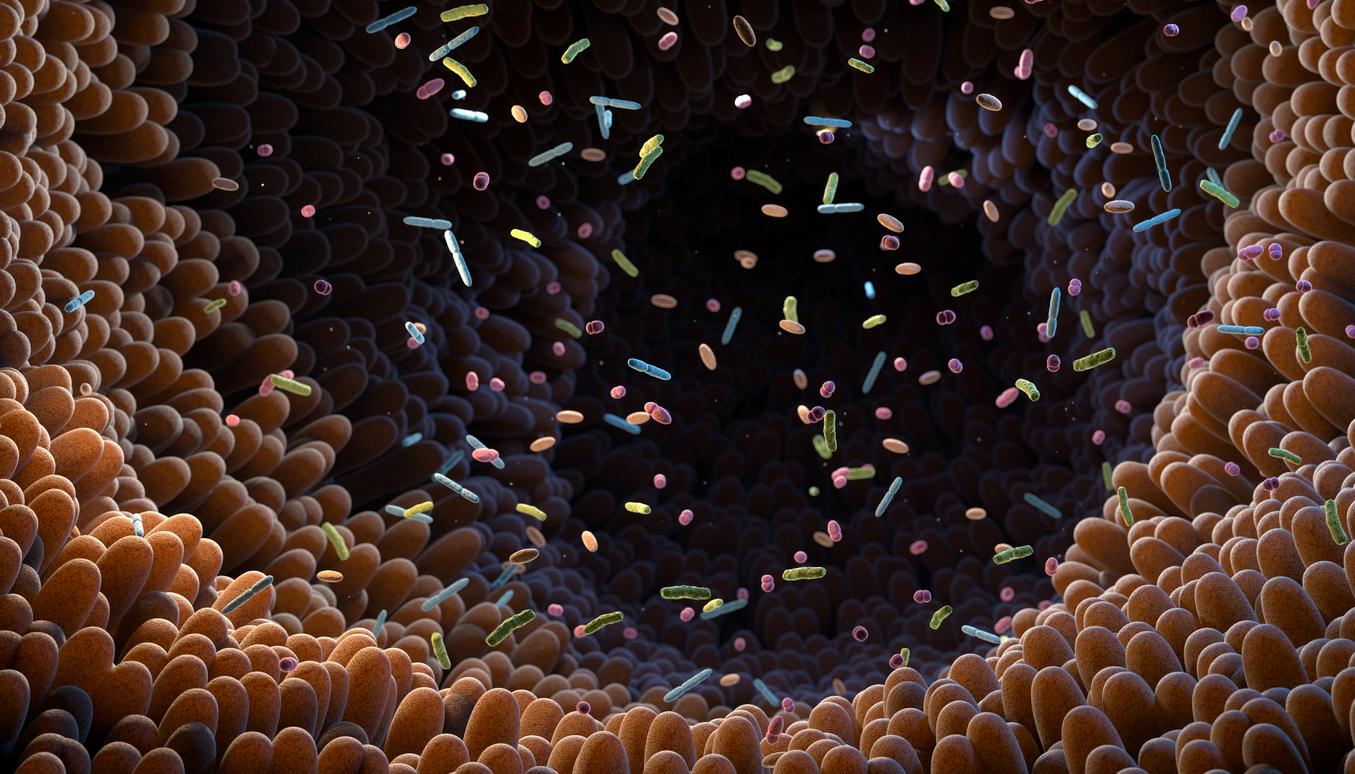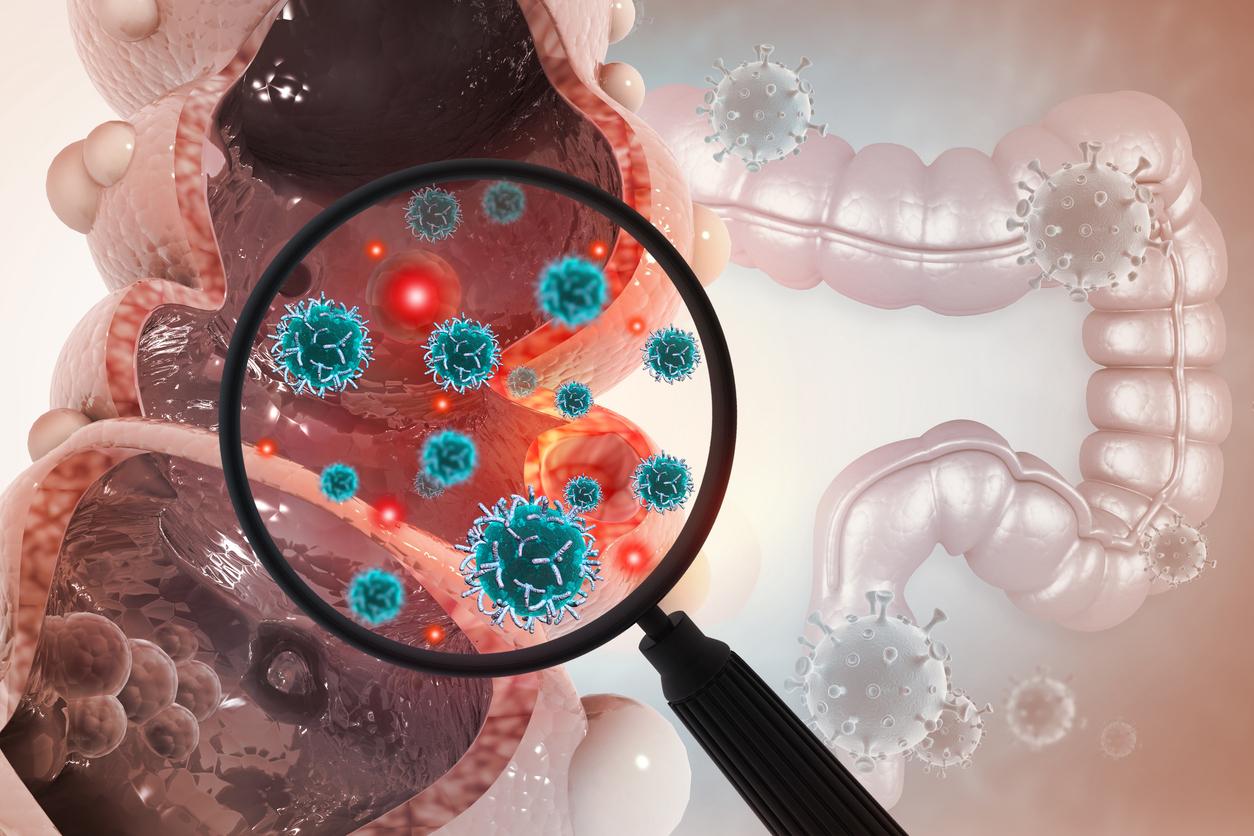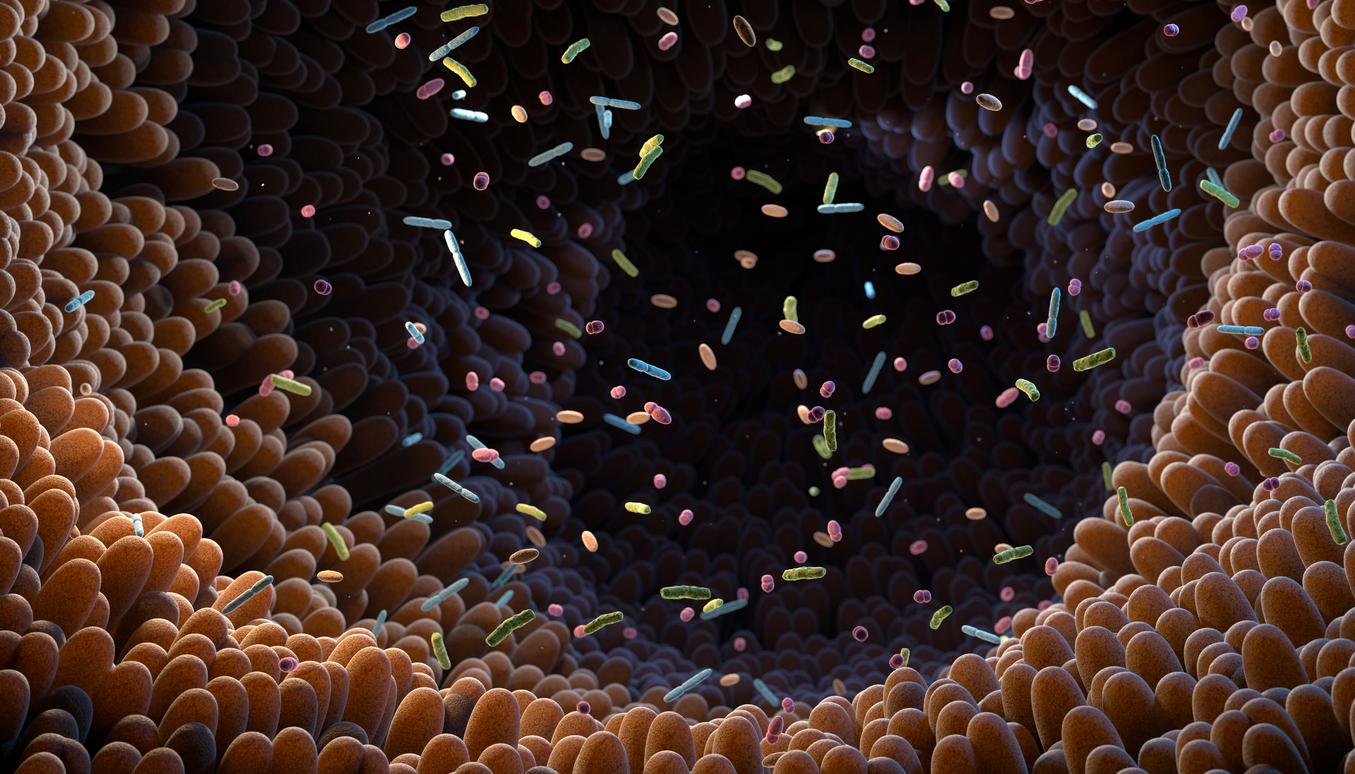A team of researchers has highlighted the role that the Akkermansia bacterium, naturally present in the intestine, could play in reducing several risk factors for cardiovascular disease.

A “major discovery”. That’s how the research team from the Catholic University of Leuven in Belgium called the results of their latest clinical study of a gut bacterium. called Akkermansia muciniphilathis bacterium, which is part of the microbiota of the human digestive tract, brings hope in the prevention of certain pathologies, starting with cardiovascular diseases.
In a study released on Monday 1er July in NatureMedicinethe team of researchers led by Patrice Cani, researcher at the Louvain Drug Research Institute of UCLouvain and senior researcher at the FNRS, has highlighted the role of the bacterium Akkermansia muciniphila in reducing several risk factors for cardiovascular disease, but also in limiting the progression of type 2 pre-diabetes and reducing cholesterol levels in humans.
A first clinical trial on humans
Bacteria research Akkermansia muciniphila began in 2007, when researchers discovered that it was able to attenuate the development of obesity and type 2 diabetes in mice.
Ten years later, the same team demonstrated, still in mice, that the use of a pasteurized form of the bacterium offered even more effective protection than the live bacterium against various risk factors for cardiovascular disease such as insulin resistance, hypercholesterolemia or fat storage in adipose tissue.
Following these discoveries, the UCLouvain team developed a first clinical study on humans. For three months, they tested the bacteria on overweight or obese volunteers with insulin resistance (pre-diabetes type 2) and metabolic syndrome. The latter either received a placebo, or the live bacteria, or the pasteurized bacteria in the form of a food supplement. They were asked not to change their eating habits or their physical activity.
A dietary supplement from 2021
This study clearly confirms the results observed in mice: the ingestion of the pasteurized bacterium prevented the deterioration of the state of health of the participants, in particular pre-diabetes and the increase in cardiovascular risks. Even better, the researchers observed a decrease in markers of inflammation in the liver, a slight decrease in the subjects’ body weight (2.3 kg on average) and a drop in cholesterol levels. In contrast, metabolic parameters (insulin resistance or hypercholesterolemia) in placebo subjects continued to deteriorate over time.
For the researchers, this pilot study is important because it “demonstrates the feasibility of administering the pasteurized Akkermansia bacterium to humans in the form of a food supplement and reports encouraging results on the effectiveness of food supplements based onAkkermansia to reduce cardio-metabolic risk factors,” the press release said.
Now, the researchers want to conduct a large-scale study to confirm these results and endorse the commercialization of the Akkermansia bacterium as a dietary supplement by 2021.

.















